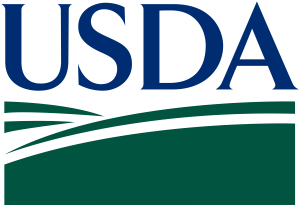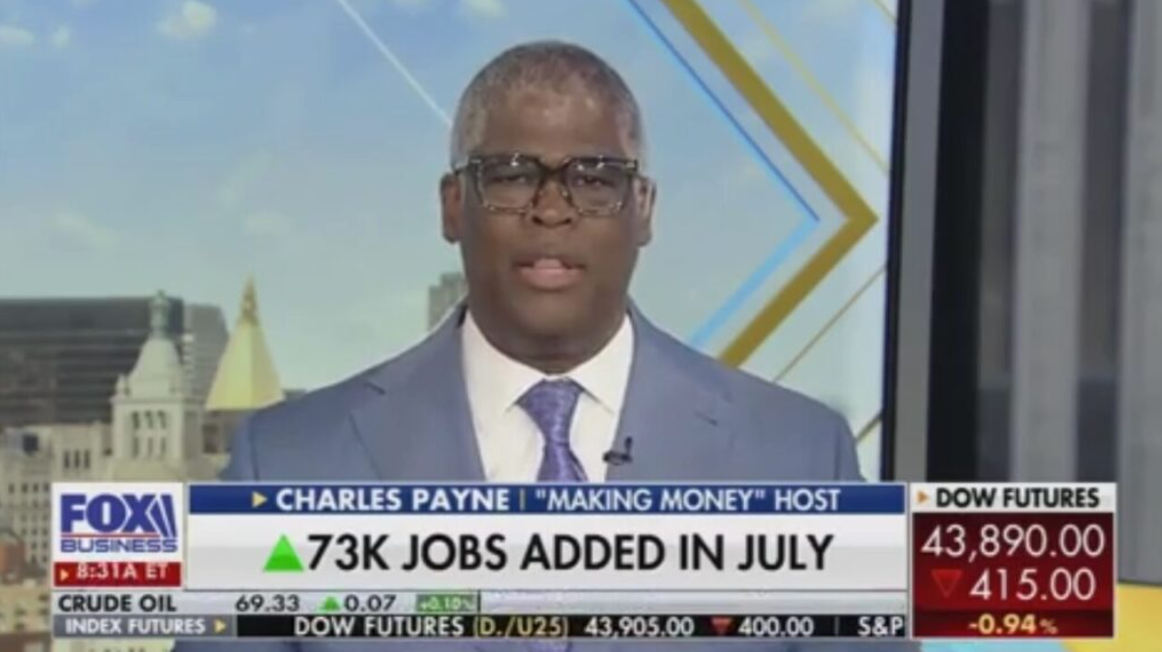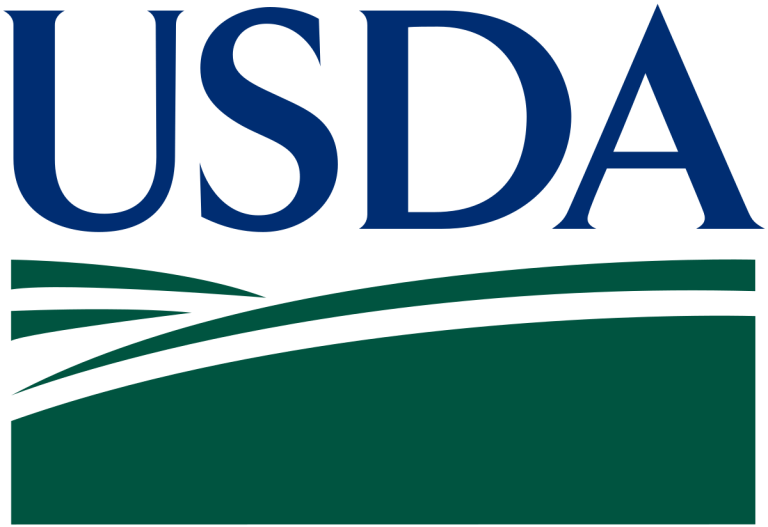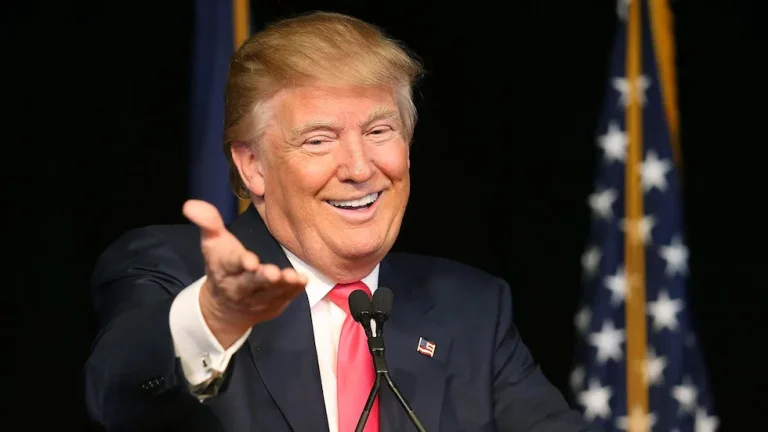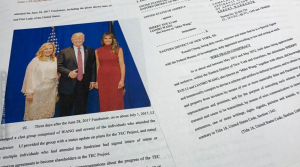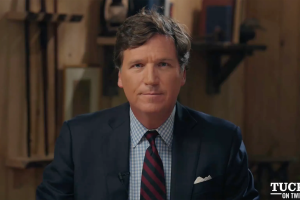The July jobs report released last week has sparked a fierce backlash against the Federal Reserve, with Fox Business Network panelists sharply criticizing the central bank’s monetary policies. The report, which showed an unexpectedly weak labor market, raised concerns that the Fed’s aggressive interest rate hikes may be doing more harm than good to the broader economy.
Two Economies, One Fed
Charles Payne, host of Making Money on Fox Business, called the Fed’s approach “regressive,” pointing out that while the economy appears strong on paper, many average households and small businesses are struggling. “There are two economies,” Payne explained. “The Fed’s looking at the wealthiest folks out there and thinking it means everyone.”
This “two-track” economic reality was illustrated by rising loan delinquencies and refinancing pressures, signaling financial distress in middle- and lower-income communities despite overall job gains. Payne and other commentators argued that the Fed’s one-size-fits-all policy has overlooked this divide.
Stark Revisions Deepen Concerns
Economist Stephanie Pomboy highlighted the steep downward revisions in the jobs numbers for May and June. Initial reports of 147,000 and 175,000 new jobs were revised down to 14,000 and 19,000, respectively — revealing a far weaker labor market than previously believed.
“July’s 73,000 jobs gain looks even more disappointing with those revisions,” Pomboy said. She also noted that favorable seasonal adjustments, which typically inflate summer employment figures, failed to buoy the data this time around.
Growing Calls for Fed Rate Cuts
The panel unanimously agreed that the Federal Reserve now faces increased pressure to cut interest rates to support the economy. Pomboy pointed to recent Fed meeting dissent, with two officials opposing further hikes as evidence of internal disagreement about the current strategy.
Maria Bartiromo, host of Mornings with Maria, emphasized how critical the jobs data is for the Fed’s decision-making process. “This report is so critical for the Federal Reserve’s next move,” she said, underscoring the possibility that Powell may pivot toward easing policy.
Economic Divide at Risk of Worsening
Despite signs of moderating inflation, the Fed’s continued hawkish stance has raised alarms about deepening economic inequality. Critics warn that keeping rates high could further strain the labor market and exacerbate financial hardships for millions.
As the next Federal Reserve meeting approaches, all eyes will be on Chairman Jerome Powell to see if he responds to these warning signs or stays the course — risking a widening gap between the “two economies.”

Emily Johnson is a critically acclaimed essayist and novelist known for her thought-provoking works centered on feminism, women’s rights, and modern relationships. Born and raised in Portland, Oregon, Emily grew up with a deep love of books, often spending her afternoons at her local library. She went on to study literature and gender studies at UCLA, where she became deeply involved in activism and began publishing essays in campus journals. Her debut essay collection, Voices Unbound, struck a chord with readers nationwide for its fearless exploration of gender dynamics, identity, and the challenges faced by women in contemporary society. Emily later transitioned into fiction, writing novels that balance compelling storytelling with social commentary. Her protagonists are often strong, multidimensional women navigating love, ambition, and the struggles of everyday life, making her a favorite among readers who crave authentic, relatable narratives. Critics praise her ability to merge personal intimacy with universal themes. Off the page, Emily is an advocate for women in publishing, leading workshops that encourage young female writers to embrace their voices. She lives in Seattle with her partner and two rescue cats, where she continues to write, teach, and inspire a new generation of storytellers.
